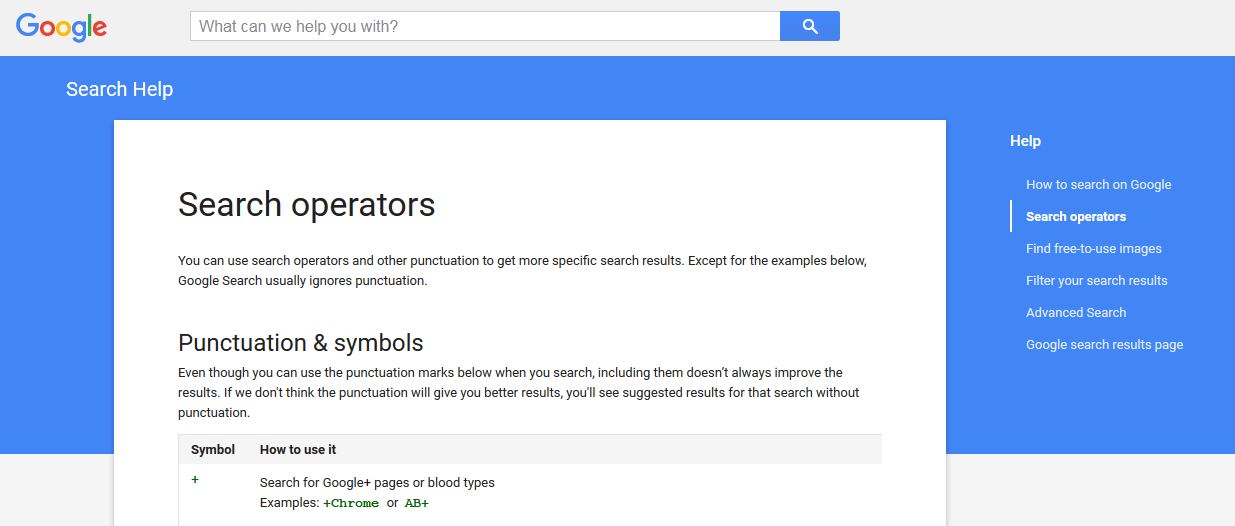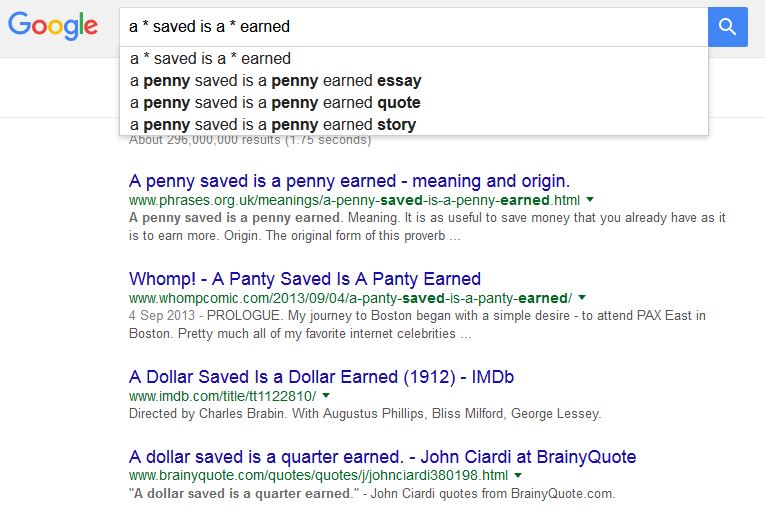
We’ve been aware of Boolean searches for some time but we thought it would be a good bit of research for our website design clients to investigate how to improve search results using Google.
A Boolean search is the same as any search you carry out on Google but by using the Boolean technique it is possible to create a hybrid search that delivers more accurate results.
Here’s an example: you know roughly what you want but can’t remember the exact word or phrase so you can insert ‘*’ (asterisks) to act as a wild card. Google then tries to match the missing word(s)
a * saved is a * earned
and the results…
By using the * as a known symbol that Google understands as an action you can force different results. Here are some more…
+ Search for Google+ pages or blood types. Examples: +Chrome or AB+
@ Find social tags. Example: @agoogler
£ Find prices. Example: nikon £400
# Find popular hashtags for trending topics. Example: #throwbackthursday
– When you use a dash before a word or site, it excludes sites with that info from your results. This is useful for words with multiple meanings, like Jaguar the car brand and jaguar the animal. Examples: jaguar speed -car or pandas -site:wikipedia.org
“ When you put a word or phrase in quotes, the results will only include pages with the same words in the same order as the ones inside the quotes. Only use this if you’re looking for an exact word or phrase, otherwise you’ll exclude many helpful results by mistake. Example: “imagine all the people”
* Add an asterisk as a placeholder for any unknown or wildcard terms. Example: “a * saved is a * earned”
.. Separate numbers by two periods without spaces to see results that contain numbers in a range. Example: camera £50..£100
Search operators
Search operators are words that can be added to searches to help narrow down the results. Google’s Advanced Search also covers these.
site: Get results from certain sites or domains. Examples: olympics site:nbc.com and olympics site:.gov
related: Find sites that are similar to a web address you already know. Example: related:time.com
OR Find pages that might use one of several words. Example: marathon OR race
info: Get information about a web address, including the cached version of the page, similar pages, and pages that link to the site. Example: info:google.com
cache: See what a page looks like the last time Google visited the site. Example: cache:oasthousemedia.co.uk
Note: When you search using operators or punctuation marks, don’t add any spaces between the operator and your search terms. A search for site:nytimes.com will work, but site: nytimes.com won’t.
Boolean searches are common to most search engines but they may, like Google, use unique words or characters for results
Source: support.google.com/websearch/answer.
More about Boolean: websearch.about.com



 Previous Post
Previous Post Next Post
Next Post